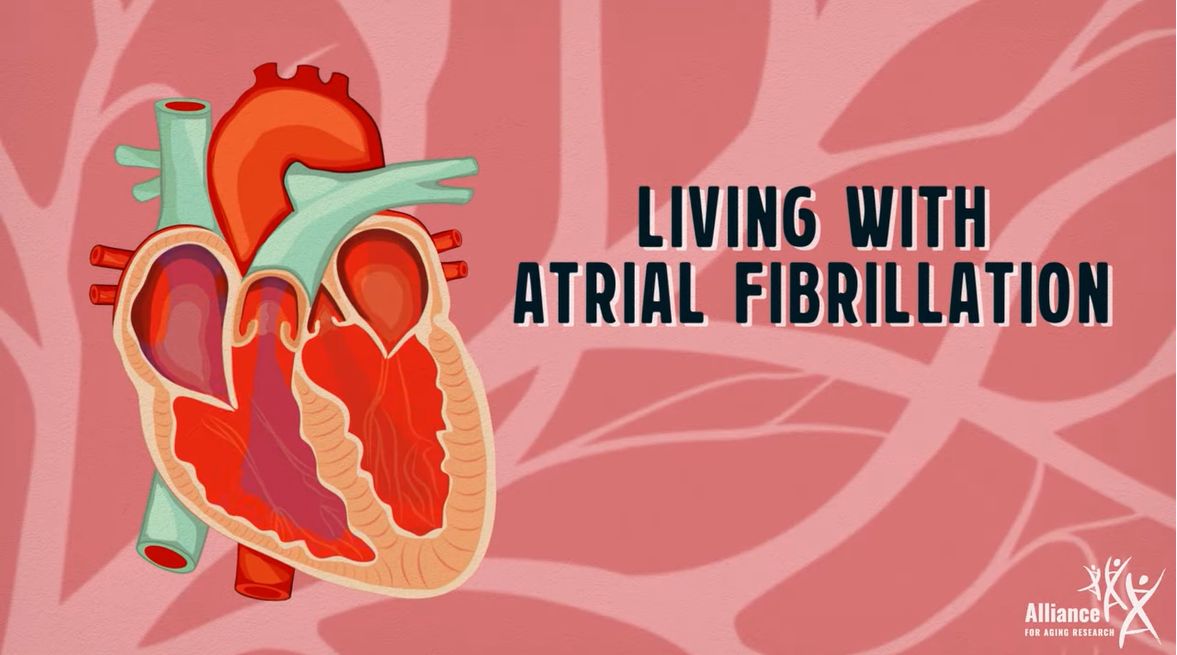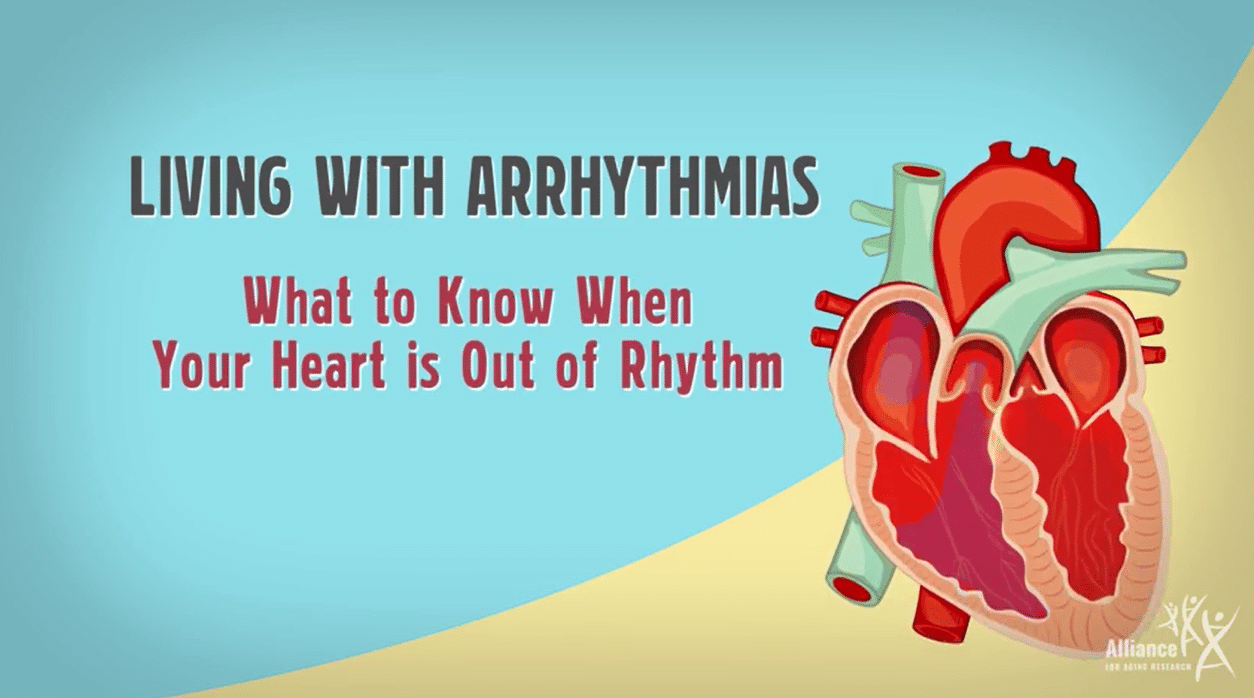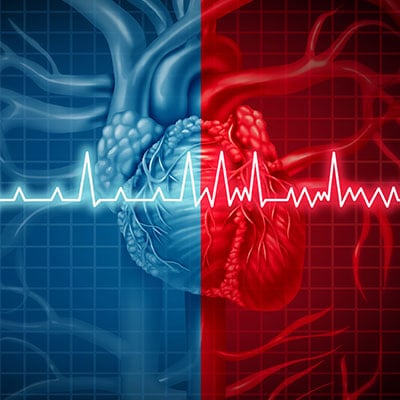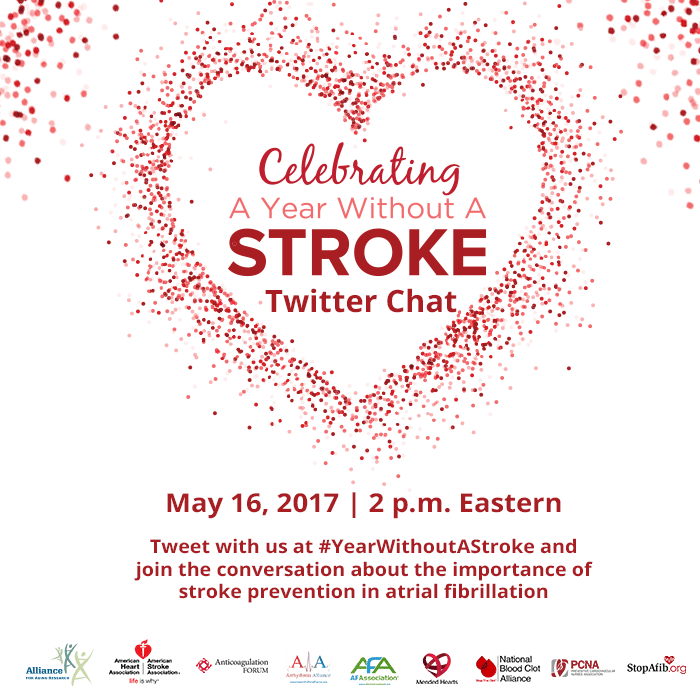Arrhythmias
The rate and rhythm of the heart is controlled by electrical signals that cause the heart to contract, or squeeze, in a coordinated manner and continuously circulate blood through the lungs and out to the rest of the body to deliver vital oxygen. Irregular heart rhythms, or arrhythmias, occur when the heart’s electrical signals are abnormal—making it beat too fast, too slow, or in an uncoordinated manner. That irregular heart rhythm can interfere with the heart’s ability to pump effectively.
There are a number of different types of arrhythmias, including atrial fibrillation (AFib), atrial flutter, ventricular tachycardia, paroxysmal supraventricular tachycardia (PSVT), and more. Some types of arrhythmia resolve on their own, while others need treatment. Some types are harmless, while others can be dangerous or even fatal.
A number of conditions can cause arrhythmias like blocked arteries and other heart problems, high blood pressure, thyroid problems, diabetes, sleep apnea, and COVID-19. Smoking, drinking too much alcohol or caffeine, drug abuse, stress or anxiety, certain medications and supplements, congenital abnormalities, and genetics can also cause arrhythmias.
Arrhythmias don’t always cause symptoms, but they can cause a fluttering in the chest, an irregular heartbeat, chest pain, shortness of breath, anxiety, fatigue, lightheadedness or dizziness, sweating, and fainting or near fainting. Symptoms don’t mean the problem is serious, but they can be scary and impact day-to-day activities. An accurate diagnosis is a critical step in living with, treating, and potentially curing your arrhythmia. Some arrhythmias can be managed with lifestyle changes and medication, while others will need procedures or even surgery.
Atrial Fibrillation
Atrial fibrillation is the most common type of arrhythmia that impacts as many as 6 million Americans and raises the risk of stroke by 500%.
Paroxysmal Supraventricular Tachycardia (PSVT)
Paroxysmal supraventricular tachycardia (PSVT) is an arrhythmia that is usually harmless but can cause frequent and/or debilitating symptoms.
Videos on Arrhythmias

Preventing Atrial Fibrillation (AFib) Related Strokes
Atrial fibrillation (AFib) is one of the most common types of arrhythmias—or irregular heartbeats—and causes the heart to…
more.
Living with Atrial Fibrillation (AFib)
Atrial fibrillation (AFib) is one of the most common types of arrhythmias—or irregular heartbeats—and causes the heart to…
more.
Living with Arrhythmias: What to Know When Your Heart is Out of Rhythm
Have you or a loved one ever experienced an irregular heart rhythm? If so, you know how frightening it can…
more.The Healthy Aging Blog
Posts on arrhythmias, atrial fibrillation, PSVT, stroke prevention, and more.
Related Initiative
Celebrating a Year Without a Stroke
This campaign shares the real stories of people who have experienced and seen first-hand how serious strokes can be. These advocates all share the mission of educating patients and their loved ones about stroke risk and prevention, so that they can Celebrate a Year Without a Stroke.
Living Longer and Loving It
Sign up for our monthly e-mail newsletter for the latest information on
scientific research on aging and health.

The Alliance for Aging Research is a proud recipient of Candid’s Platinum Seal of Transparency.

The Alliance for Aging Research is proud to be rated a 4-star charity by Charity Navigator.
Ways to Give
There are many ways you can help accelerate the pace of scientific discoveries and their application to vastly improve the universal human experience of aging and health:




